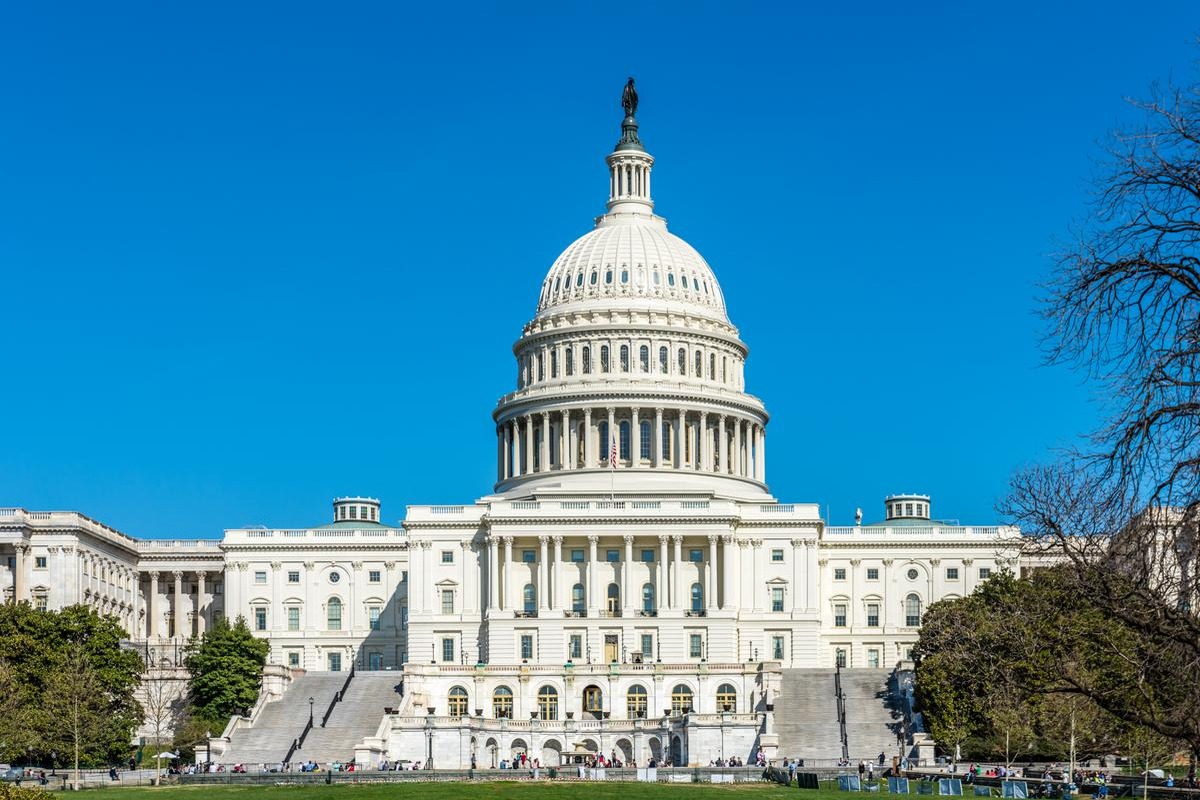On Thursday, Senior House Republicans presented legislation to resolve the regulatory ambiguity surrounding the digital asset industry.
The proposed bill calls for mandatory definitions of “blockchain” and “digital asset” to be included within the existing financial laws by market regulators.
The “Financial Innovation and Technology for the 21st Century Act,” a 212-page bill, aims to create a crucial regulatory framework for the digital asset sector.
It seeks to introduce new regulations for digital asset exchanges and provide clear guidelines for the roles of the Commodity Futures Trading Commission (CFTC) and the Securities and Exchange Commission in overseeing cryptocurrencies.
The comprehensive bill has garnered support from influential members, including Rep. Glenn Thompson (R-Pa.), Chair of the House Agriculture Committee. Rep. French Hill (R-Ark.) and Rep. Dusty Johnson (R-S.D.) are co-sponsors.
Notably, Hill chairs the Subcommittee on Digital Assets, Financial Technology, and Inclusion, while Johnson leads the Subcommittee on Commodity Markets, Digital Assets, and Rural Development.
Rep. Tom Emmer (R-Minn.) and Rep. Warren Davidson (R-Ohio), both active crypto advocates, joined as co-sponsors during this session.
New Bill Proposes SEC Regulatory Framework
The bill proposes a notable feature – a certification process for blockchains to be recognized as decentralized.
This would empower the SEC to challenge claims made by token issuers about meeting the outlined standards.
Under the new rules, digital asset issuers must adhere to a disclosure regime, sharing essential information about their project’s economics, development plan, and risk factors.
The disclosure requirements include providing the project’s source code.
The legislation provides clear guidelines for classifying digital assets, emphasizing that the presence of an investment contract does not automatically categorize a token as a security.
According to the co-sponsors’ fact sheet, approximately 70% of all crypto tokens are more appropriately considered commodities than securities.
To serve as digital asset intermediaries, the agency must inspect companies seeking to register as broker-dealers or alternative trading systems with the SEC.
Bill Aims to Bridge Regulatory Gaps and Foster Innovation in US Crypto Industry
House Committee on Agriculture Chairman Glenn Thompson (R-PA) stated that the bill aims to address the existing regulatory gaps in the industry.
He described the legislation as a “landmark,” emphasizing its dual purpose of protecting consumers and fostering innovation within the United States.
The bill’s introduction follows months of debate on the discussion draft among lawmakers.
Notably, the House Financial Services Committee held a hearing in early June to discuss the proposed legislation.
Participants at the hearing lauded the bill’s objective to establish clear distinctions in powers between the SEC and CFTC.
In a statement on Thursday, Rep. Thompson expressed that his teams have gathered extensive feedback from stakeholders and market participants over the past few months.
Their legislative product addresses existing authority gaps and maintains US leadership in financial and technological innovation.
However, it is expected that House Democrats will offer resistance to the bill, as many of them argue for a more significant role for the SEC compared to what the current bill proposes.
On Thursday, Senior House Republicans presented legislation to resolve the regulatory ambiguity surrounding the digital asset industry.
The proposed bill calls for mandatory definitions of “blockchain” and “digital asset” to be included within the existing financial laws by market regulators.
The “Financial Innovation and Technology for the 21st Century Act,” a 212-page bill, aims to create a crucial regulatory framework for the digital asset sector.
It seeks to introduce new regulations for digital asset exchanges and provide clear guidelines for the roles of the Commodity Futures Trading Commission (CFTC) and the Securities and Exchange Commission in overseeing cryptocurrencies.
The comprehensive bill has garnered support from influential members, including Rep. Glenn Thompson (R-Pa.), Chair of the House Agriculture Committee. Rep. French Hill (R-Ark.) and Rep. Dusty Johnson (R-S.D.) are co-sponsors.
Notably, Hill chairs the Subcommittee on Digital Assets, Financial Technology, and Inclusion, while Johnson leads the Subcommittee on Commodity Markets, Digital Assets, and Rural Development.
Rep. Tom Emmer (R-Minn.) and Rep. Warren Davidson (R-Ohio), both active crypto advocates, joined as co-sponsors during this session.
New Bill Proposes SEC Regulatory Framework
The bill proposes a notable feature – a certification process for blockchains to be recognized as decentralized.
This would empower the SEC to challenge claims made by token issuers about meeting the outlined standards.
Under the new rules, digital asset issuers must adhere to a disclosure regime, sharing essential information about their project’s economics, development plan, and risk factors.
The disclosure requirements include providing the project’s source code.
The legislation provides clear guidelines for classifying digital assets, emphasizing that the presence of an investment contract does not automatically categorize a token as a security.
According to the co-sponsors’ fact sheet, approximately 70% of all crypto tokens are more appropriately considered commodities than securities.
To serve as digital asset intermediaries, the agency must inspect companies seeking to register as broker-dealers or alternative trading systems with the SEC.
Bill Aims to Bridge Regulatory Gaps and Foster Innovation in US Crypto Industry
House Committee on Agriculture Chairman Glenn Thompson (R-PA) stated that the bill aims to address the existing regulatory gaps in the industry.
He described the legislation as a “landmark,” emphasizing its dual purpose of protecting consumers and fostering innovation within the United States.
The bill’s introduction follows months of debate on the discussion draft among lawmakers.
Notably, the House Financial Services Committee held a hearing in early June to discuss the proposed legislation.
Participants at the hearing lauded the bill’s objective to establish clear distinctions in powers between the SEC and CFTC.
In a statement on Thursday, Rep. Thompson expressed that his teams have gathered extensive feedback from stakeholders and market participants over the past few months.
Their legislative product addresses existing authority gaps and maintains US leadership in financial and technological innovation.
However, it is expected that House Democrats will offer resistance to the bill, as many of them argue for a more significant role for the SEC compared to what the current bill proposes.
